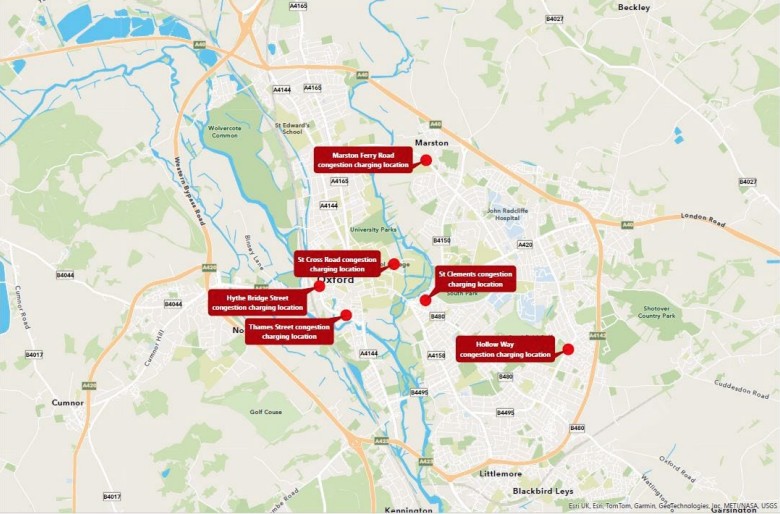Oxford New Temporary Congestion Charges: What You Need To Know
From late Autumn 2025, Oxford is introducing a temporary congestion charge scheme designed to reduce traffic while Botley Road is closed and while planned traffic filters are delayed. Here’s what you, as a short term rental owner, or a guest visiting Oxford need to know so there are no surprises.
What Is the Scheme?
- A £5.00 daily charge will be applied to cars that pass through any of six specified charging locations in Oxford.
- The charge applies once per day even if you cross multiple charging points, you’ll still just pay the one fee.
- Cameras using automatic number plate recognition (ANPR) will enforce it.
Where, When & Who It Affects
| Aspect | Details |
| Start time | Late autumn 2025. Exact date to be confirmed. Scheme runs until traffic filters trial starts (expected August 2026). |
| Affected locations | Six locations: Hythe Bridge Street; St Cross Road; St Clement’s Street; Thames Street; Marston Ferry Road; Hollow Way. |
| Affected times | Most areas: 7am-7pm daily. Some (Marston Ferry Road & Hollow Way) only during peak hours (Mon-Sat, 7am-9am & 3pm-6pm). |
| Who pays | Cars without a permit. All other vehicles are exempt. Electric or hybrid cars are not automatically exempt. |
Map of Affected Locations

Advice for Short Let Homes Owners
As an agency whose priority is hosting your guests and offering the best experience we can, this is what we can do to help:
- We will inform your guests ahead of arrival. Including information in your listing or welcome pack a note about the congestion charge: which routes are affected, how payments work, where to avoid, etc.
- We can suggest alternative travel advice. Encourage guests to use park & ride services, public transport, or walking/cycling options when possible.
- We will keep ourselves and you updated. Since details like permit applications and maps are being finalised, we will be keeping an eye on Oxfordshire County Council’s official pages.
Permits & Exemptions
Short-let owners will want to check whether a permit applies; if not, how to manage the charges. Key points:
- Permits are free and valid for 12 months.
- Eligible groups: blue badge holders; carers; community health/care workers; traders; etc. Also residents in a central permit area, commuters whose workplaces are in that area.
- Residents in the wider Oxford permit area will get a number of day passes for free travel through charge locations:
- Central permit area residents: unlimited with permit; 50 visitor day passes.
- Wider Oxford permit area residents: 100 day passes.
- Oxfordshire permit area (outside the core): 25 day passes.
Fines and Payment
If you drive through a charging point without paying (and without a permit), the fine is £70, reduced to £35 if paid within 21 days. Payment must be made online by midnight the next day after passing a charging point. Phone payment options will also be available.
Implications for Short Let Guests
If you’re planning a stay in Oxford, it’s important to be aware of how the congestion charge could affect your travel:
- Check your accommodations’ location. If your accommodation is inside or beyond a charging point, driving in and out during charge times may mean paying the £5.00 daily fee.
- Plan for the daily charge. If you’ll be using a car regularly, factor this cost into your stay and make sure you pay online by the deadline to avoid fines.
- Consider alternative routes. Some journeys can be planned to avoid charging points altogether. Before you set off, check your routes to see if you can bypass the zones.
- Use public transport instead. Oxford’s buses and park & ride services are a great way to move around the city without worrying about the charge: we’ll be happy to recommend the most convenient options for your accommodation.
Why It’s Happening
The congestion charge is being introduced as a temporary measure, because the closure of Botley Road has worsened congestion in many areas. Bus journey times have increased; the scheme aims to make buses faster and more reliable, improve air quality, reduce pollution, and make walking & cycling safer.
Oxford is a wonderful city to explore, and with a little planning the new congestion charge doesn’t need to get in the way. Our team at Short Let Space is here to guide both guests and owners through the changes so you can focus on enjoying your time in this historic city.



